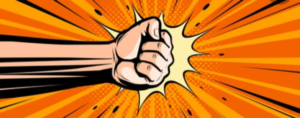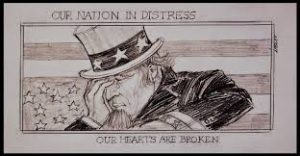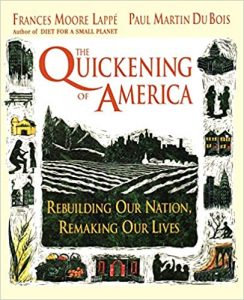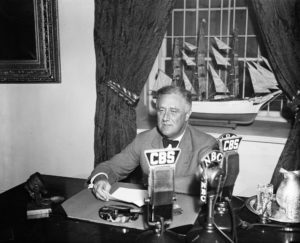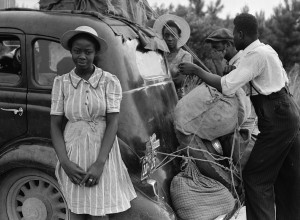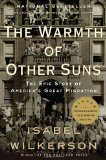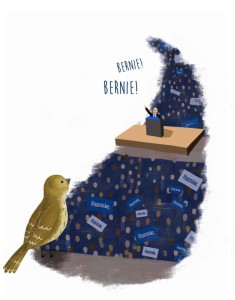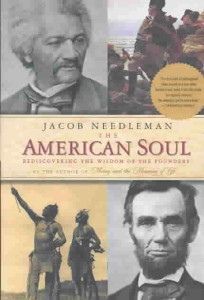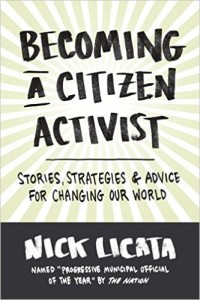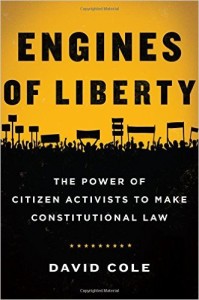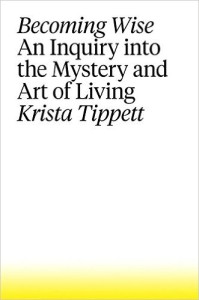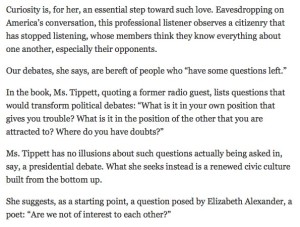Because it’s not personal. And a caste system is a structure that we have inherited, that we did not create, that we don’t — there’s no point in pointing fingers about it, but it’s something that we — recognizing it is the first step toward dismantling it.
Krista Tippet
Thoughts on Democracy & Gaia
May 22, 2020Gaia
From Father Richard Rohr, Barbara Holmes, and Bill McKibbon:
Goodness is a first principle of the universe. God declares it on the first page of the story of creation. —Barbara Holmes
Creation is the first Bible, as I (and others) like to say [1], and it existed for 13.7 billion years before the second Bible was written. Natural things like animals, plants, rocks, and clouds give glory to God just by being themselves, just what God created them to be. It is only we humans who have been given the free will to choose not to be what God created us to be. Surprisingly, the environmentalist and author Bill McKibben finds hope in this unique freedom. He writes:
The most curious of all . . . lives are the human ones, because we can destroy, but also because we can decide not to destroy. The turtle does what she does, and magnificently. She can’t not do it, though, any more than the beaver can decide to take a break from building dams or the bee from making honey. But if the bird’s special gift is flight, ours is the possibility of restraint.
We’re the only creature who can decide not to do something we’re capable of doing. That’s our superpower, even if we exercise it too rarely.
So, yes, we can wreck the Earth as we’ve known it, killing vast numbers of ourselves and wiping out entire swaths of other life—in fact . . . we’re doing that right now. But we can also not do that. . . .
We have the tools (nonviolence chief among them) to allow us to stand up to the powerful and the reckless, and we have the fundamental idea of human solidarity that we could take as our guide. . . .
While the lives of our elders, our vulnerable, and essential workers are at stake during the COVID-19 pandemic, tens of millions of us across the globe have been restraining ourselves at home, choosing not to do many things for many weeks in order to protect those we love (and those others love as well). Surely the earth is breathing a sigh of relief for our reduction in pollution and fossil fuel use. This “Great Pause,” as some are calling it, gives me hope that we will soon find it within ourselves to protect our shared home, not only for our own sake, but for our neighbors across the globe, and future generations.
Democracy
How is a huge part of the world organised under a system that has different meanings country-to-country, and could even mean something different to you, and the person standing behind you in the line to vote?
How do we know democracy is broken if we don’t know what it is?
by Patrick Chalmers.
“To my mind, there seems no better starting point for understanding politics than to grapple with the word “democracy”. What does it mean and how should it work?
The word is easy enough to define. It comes from the Greek for people (demos) and power (kratos), translating as people power, or government by the people. Most of us know democracy as something like that. But things quickly get more complicated when we ask what exactly that means in everyday life.
‘…there’s ubuntu, Watch South African Anglican cleric and human rights activist Desmond Mpilo Tutu describe ubuntu in this video clip.the Nguni language word for a humanist philosophy and way of living from southern Africa. It’s most often translated as “I am, because you are”, a profoundly political concept which evokes the connectedness that exists, or should exist, between all people and the planet – a manifesto for inclusive government.’
The distorting – if not corrupting – influence of money helps to explain why elected representatives rarely reflect the societies they are meant to represent but rather their richer members. Consider the representation of women in government. Though their share of seats in legislatures worldwide is growing, they still represent fewer than a quarter of deputies. The same goes for minorities – whatever they may be, wherever they may be. So while, for example, western countries are becoming more ethnically, racially and religiously diverse, their legislators generally haven’t kept pace with these changes. If the current US presidential race is anything to go by, the face of democracy is still pale, male and stale. In parts of the world where people of colour are the majority, male and stale usually covers it.”
Rilke:
As the arrow endures the bowstring’s tension so that, released, it travels farther. For there is nowhere to remain.
Alexandra Stoddard:
Concentrate on seeing all the beauty your soul can absorb but turn away from what is ugly and vile and degrading. The higher your sights, the better your spirits. Everything we do requires us to reveal our inner longings. Identify them clearly and make productive use of them.
Thomas Merton:
There is nothing more tragic in the modern world than the misuse of power and action to which men are driven by their own Faustian misunderstandings and misapprehensions. We have more power at our disposal today that we have ever had, and yet we are the more alienated and estranged from the inner ground of meaning and love than we have ever been. -Contemplation in a World of Action, 1965
A Democratic Pledge
I would like to
- become more selective in what I watch and read
- become more critically aware of the messages I receive
- find new sources information about the things I care about most
- participate in local media
- create interactions in my community
Living Democracy is emerging within the human services, focusing not solely on individual self-reliance but also on the capacities of people to work together for mutual healing and problem solving. Society’s obligation to help support citizens with specific needs does not have to mean top-down governmental control; self-help and society’s help are mutually enhancing and mutually beneficial.
Listen.
Jacqueline Novogratz
Towards a Moral Revolution
Moral reckonings are being driven to the surface of our life together: What are politics for? What is an economy for? Jacqueline Novogratz says the simplistic ways we take up such questions — if we take them up at all — is inadequate. Novogratz is an innovator in creative, human-centered capitalism. She has described her recent book, Manifesto for a Moral Revolution, as a love letter to the next generation.
‘I think, in this moment of such peril & possibility, we really could build a world like the world has never seen before. If there was ever a decade to do it, it’s this decade. I want future generations to say, “Look how hard they tried,” not “Look at how blind they were.”’
Champions of Democracy
October 7, 2019Modeled after FDR’s historic 1941 speech to Congress, laureates receive honors in the following categories: freedom of speech and expression, freedom of worship, freedom from want, freedom from fear, and the freedom medal.
“Today’s political moment calls for a regrounding in Rooseveltian values, which each of this year’s laureates embodies. As FDR told our nation almost 80 years ago, we must never give up our fight for democracy.”
Roosevelt Institute Presents 2019 Four Freedoms Awards to Champions of Democracy
Oct. 5th
Ceremony highlights the importance of democratic values in a challenging political landscape
‘Today, the Roosevelt Institute celebrated the Four Freedoms Awards, honoring Franklin and Eleanor Roosevelt’s legacies and those who exemplify core freedoms that uphold our democracy. The Four Freedoms Awards are presented in alternating years by the Roosevelt Institute in the US and Roosevelt Stichting in the Netherlands, FDR’s ancestral home. For the first time since 2011, the New York event has returned to Hyde Park and was attended by 265 people, including Han Polman, King’s Commissioner in the Province of Zeeland & Chair of the Roosevelt Foundation and a delegation of over 30 from the Netherlands.
This year’s recipients are:
- Freedom Medal: Lonnie Bunch for his significant contributions to American culture and society as a historian and storyteller. Bunch is the founding director of the National Museum of African American History and Culture and is currently secretary of the Smithsonian Institution. He is the first African American to hold this position.
- Freedom of Speech and Expression: The Boston Globe for its call to news organizations to publish editorials in support of a free press and their critical role in democracy.
- Freedom of Worship: Krista Tippett for her honest pursuit of ancient and enduring human questions about our spiritual traditions.
- Freedom from Want: Franklin Thomas for dedicating his life to public service, community development, and philanthropy. Thomas was the first African American president of the Ford Foundation, where he focused on issues relating to urban poverty, human rights, and anti-apartheid initiatives.
- Freedom from Fear: Sandy Hook Promise for recognizing the need to build community and engage in powerful advocacy around gun violence following an unthinkable tragedy.
“The Four Freedoms Awards represent a continuing dedication to the values my grandparents, Franklin and Eleanor Roosevelt, so embodied—beliefs around human freedoms and security, shared well-being, and the importance and strength of the democratic process,” said Anna Eleanor Roosevelt, Board Chair of the Roosevelt Institute. “I am so pleased that this event has returned home to Hyde Park. It’s not only the birthplace and home of my grandfather, but it’s especially important as the site of his Presidential Library and Museum.”
“The Four Freedoms and those who champion them are more important now than ever,” said Felicia Wong, President and CEO of the Roosevelt Institute.“Today’s political moment calls for a regrounding in Rooseveltian values, which each of this year’s laureates embodies. As FDR told our nation almost 80 years ago, we must never give up our fight for democracy.”
Past recipients of the Four Freedoms Awards include Presidents Truman, Kennedy, Carter, and Clinton; international luminaries, such as Nelson Mandela and the Dalai Lama; and treasured Americans, including Supreme Court Associate Justice Ruth Bader Ginsburg, journalist Dan Rather, civil rights leader Coretta Scott King, and Equal Justice Initiative founder Bryan Stevenson. You can learn more about the Four Freedoms Awards here.
About the Franklin D. Roosevelt Presidential Library and Museum
The Franklin D. Roosevelt Presidential Library and Museum is America’s first presidential library—and the only one used by a sitting president. Conceived and built under President Roosevelt’s direction and opened to the public in 1941, the Library is administered by the National Archives and Records Administration. Members and donors form a vital base of support for many of the Library’s key initiatives and help keep our doors open to visitors and students from around the world.
About the Roosevelt Institute
Until economic and social rules work for all Americans, they’re not working. Inspired by the legacy of Franklin and Eleanor, the Roosevelt Institute reimagines the rules to create a nation where everyone enjoys a fair share of our collective prosperity. We are a 21st-century think tank, bringing together multiple generations of thinkers and leaders to help drive key economic and social debates and have local and national impact. The Roosevelt Institute is also the nonprofit partner to the FDR Presidential Library and Museum.
To keep up to date with the Roosevelt Institute, please visit us on Twitter or follow our work at #RewriteTheRules.
###
‘caste system, the artificial hierarchy’
November 23, 2016You cannot diagnose a problem until you know the history of the problem that you’re trying to resolve.
The heart is the last frontier.
They were forced to seek political asylum within the borders of their own country because they were living in a caste system in the South that did not recognize their citizenship. And some of them travelled farther than current day immigrants might, but that was really not the point. The point was that the country actually was kind of two countries in one, and that’s what they had to do.
[…]
It’s about freedom and how far people are willing to go to achieve it. This is the means that they feel they must take in order to find freedom wherever they can find it.
[…]
George Swanson Starling. You asked him what he hoped for in leaving, and he said, “I was hoping I would be able to live as a man and express myself in a manly way” — I’m getting chills — “without the fear of getting lynched at night.”
[…]
These were refugee camps created in our American cities. And as they sought to expand, or if they managed to save whatever they could from these jobs — and a lot of them, new research about the Great Migration is coming out showing that they actually worked multiple jobs.
So they were actually making more money, but it wasn’t going as far because there were so many coming in, flooding these neighborhoods that were being hemmed in and pressed against. And that was the world that they had entered. They were living in the Vice Districts. I mean, all of the things that make for every possible disadvantage that you can have going in — that’s what they were facing.
Your existence, by definition, prohibited you from getting a standard mortgage. And so they would then get mortgages on the second market — secondary market which meant they were paying exorbitant rates. This is sounding very much like 2006 and 2007 for us now. And so this is all setting in motion all of these forces that were making it even more difficult for people to succeed in these big places, the cities of refuge for the people of the Great Migration.
[…]
[…]
Because, ultimately, what this migration was — and I think people are identifying it — is that it’s an unleashing of this pent-up creativity and genius, in many cases, of people miscast in this caste system.
You think about those cotton fields, and those rice plantations, and those tobacco fields, and on all of those cotton fields, and tobacco plantations, and rice plantations were opera singers, and jazz musicians, and poets, and professors, defense attorneys, doctors — I mean, that’s — this is the manifestation of the desire to be free and what was lost to the country. Because for centuries, for 246 years of enslavement — and I have to remind people — 12 generations of enslavement, 12 generations of enslavement. How many “greats” do you add to “grandparent” to get that back to 1619 until 1863? And that gives you a sense of how long all of these people were miscast into an artificial hierarchy as to what they were permitted to do, or risk death if they did not do that.
And one fact about this whole idea of where we are right now just sort of cosmically, I think, in terms of this — let me put it this way: no adult alive today will live to see a time when the time of enslavement was equal to the time of freedom. And so that shows you that this history is long, and the history is deep.
[…]
The Warmth of Other Suns by Isabel Wilkerson. It is, hands down, the best work of nonfiction I have ever read. It tells the story of how the Jim Crow laws and their accompanying attitudes shaped the lives of three black Americans who came north during the 20th century. When I was reading it, I kept saying over and over again” — just like — “‘I had no idea. I had no idea.’”
And then, “We may be clueless and awkward around the subject of race, but we know what the Gospel demands. That we keep working at being better neighbors.” I think about that so much these days, about this work of knowing our neighbors who are strangers, and that that, in fact, is the immediate work that, in fact, is not evident how we do it because we’re so segregated in so many ways in our communities, but it’s possible. People must ask you this question. I wonder how — if there’s advice you give or thoughts you — that’s terrible — or thoughts you have about this work of coming to know our neighbors who are strangers, of being neighbors, just that.
[…]
I also believe that, in the time of working on this book — it’s multi-disciplinary. There’s sociology, there’s psychology, there’s economics. All of these things are in there. But I think the foundation of all of those disciplines comes down to the history. When you go to the doctor, before you can even see the doctor, the very first thing they do is they give you all of these pages to fill out. And they — before the doctor will even see you, he wants to know your history. He doesn’t want to know just your history, he wants to know your mother’s history. He wants to know your father’s history. They may go back to your grandmother and your grandfather on both sides. And that’s before he will even see you. You cannot diagnose a problem until you know the history of the problem that you’re trying to resolve.
[…]
“Over the decades, perhaps the wrong questions have been asked about the Great Migration. Perhaps it is not a question of whether the migrants brought good or will so the cities they fled to or were pushed or pulled to their destinations, but a question of how they summoned the courage to leave in the first place or how they found the will to press beyond the forces against them and the faith in a country that had rejected them for so long. By their actions, they did not dream the American Dream, they willed it into being by a definition of their own choosing. They did not ask to be accepted but declared themselves the Americans that perhaps few others recognized but that they had always been deep within their hearts.”
[…]
Our country is like a really old house. I love old houses. I’ve always lived in old houses. But old houses need a lot of work. And the work is never done. And just when you think you’ve finished one renovation, it’s time to do something else. Something else has gone wrong.
And that’s what our country is like. And you may not want to go into that basement, but if you really don’t go into that basement, it’s at your own peril. And I think that whatever you are ignoring is not going to go away. Whatever you’re ignoring is only going to get worse. Whatever you’re ignoring will be there to be reckoned with until you reckon with it. And I think that that’s what we’re called upon to do where we are right now.
[…]
I came to believe and to know that we all have so much more in common than we’ve been led to believe and that we’ve been sadly, tragically assigned roles as if we’re in a play, and this is what these people do, and this is what these people do, and this is what these people do. And the tragedy is that, regardless of which assignment that you had been put into, that might not have been your strength at all.
Every time I talk about it, I gain new appreciation and gratitude and amazement at what they were able to do. One of the things that I hope to do was to bring invisible people into the light. They never were being written about.
http://www.onbeing.org/program/isabel-wilkerson-the-heart-is-the-last-frontier/9043
[photo: A group of migrants from Florida rest near Shawboro, North Carolina on their way to work on a potato farm in Cranberry, New Jersey. July 1940. Jack Delano, photographer/Library of Congress]
The movement continues.
July 5, 2016‘…if we can separate it out from all the right- or left-wing rhetoric, just step back into our independent mind for a moment and don’t worry about whose side you’re on or who’s good or — what are the duties that are implied by our rights? We know the rights we have. We know their words. What duties do we have? That is a question I would invite people to think about without any political agenda in their mind. And when you think about that together — and I think that’s the thing I would say we really need is — from each other is philosophical friendship, we need that people come together to think. Not action groups, those are there, waiting, but thinking groups, because out of good thought will come right action.’
-Jacob Needleman
‘What’s interesting about (Frederick) Douglass, why he should be an icon for all Americans, is that he saw, more clearly than any of us could, the evils of slavery since he was a slave, and he didn’t hate America. He loved America and he hated what America was doing with the slavery. Nowadays people who see what’s wrong with America wind up hating America, and people who are loving America, don’t want to see what’s wrong with America. In my book, I’m trying to say that America is — the ideals of America can be re-mythologized, can be expanded and deepened to such a way to include both our great triumphs and the hope we brought the world, and also the terrible crimes we’ve done. So let’s all have Douglass in our educational system as well as Jefferson.’
[…]
‘America now in the world is very necessary, if it only stays what it’s meant to be, which is the guardian of the search for conscience, the search for goodness in people. As long as it has that going on as what it’s protecting, even if the presidents and the congresspeople don’t know about it, then it’s needed in the world because the world needs people to develop into men and women of conscience.’
Jacob Needleman is Professor Emeritus of Philosophy at San Francisco State University. His many books include What Is God? and The American Soul.
(Excerpts/quotes from radio podcast, On Being, with host Krista Tippet.)
~
Seth Godin:
‘Organized bureaucracies thrive on compliance. It makes it easier to tell people what to do.
But contribution is the only way that tribes thrive, the best way to make change happen and the essence of being part of a community.
It’s a shame that we spend so much time teaching our children (and our employees) to comply. Far better to seek out contribution instead.’
‘Nick Licata dedicates his book to ‘those working to sustain a democracy that allows its citizens the freedom to shape their future, free of prejudice and poverty.’
Excerpts:
Every citizen should have the power to meaningfully participate in a democracy. Too often citizens defer to politicians, as if they are the only ones who should exercise power. You don’t need to start a movement to challenge the status quo, but you do have the power to question it.
Ultimately change begins with us. We have to help ourselves create our own future. If we don’t, someone else will.
The first step to becoming an active citizen is to find out who has power, knock on their door, and say open it up. If the door doesn’t open, then we have a choice: we can walk away or have the courage to knock harder until they open the door.
When pushing for monumental change, it’s important for political backing. So when one or two step up and champion the issue, support their election campaigns with contributions and volunteer hours if the cause is to be taken seriously.
As an activist we can echo the anger and hopes of the disenfranchised, but to make institutional changes, we need an organization that can mobilize people to join together to support and work for an issue or candidate.
The best time to win over a politician is when they’re running for office.
We need more than the right message to win a struggle; we need to be organized. We need to mobilize those who have the most to gain and have been ignored by others.
To actually achieve a goal, we have to consider how to use the political power of government and the social power of the populace to push for change.
I learned that those in authority don’t always look out for the weakest despite what they tell us.
It helps to have someone show you how to learn to look at the world differently. We are social creatures, and those we socialize with influence our views. If your friends passively accept what those in authority hand down, changes are that you will too. But if you have friends who prod those making the decisions, listen closely to what they are asking, because their questions could represent our concerns as well.
In looking around our urban landscapes, we need to consider how seemingly innocuous practices shape our physical environment.
Politicians often know what the right thing to do is, but unless there is an organized constituency to put pressure on other public officials they may feel they don’t have enough support to get legislation passed. The role of a citizen activist is to coax politicians to have the courage to pursue their own beliefs.
I have found that if we go out of our way to listen to those who we most strongly disagree with, we can gain insights on how they are successful in reaching people we want to reach. In learning what they say and how they say it, we can learn how to reach those same people with our message.
If we want to change the behavior of others, we may need to acknowledge that they have some valid concerns. The easiest way to find out is to ask them.
Whenever new information is brought forward that supports a position, do not let it sit idle. Use it.
Citizens often find that the biggest obstacle to change is government inertia. It is difficult to wrestle with because its reluctance is couched in soft general terms and processes. But government hesitation will often melt away if opposing parties agree to a common course of action. That is why it is important to talk to our opponents. We need to think of how to work with them to overcome a common antagonist; often it is an unresponsive government.
We shouldn’t be afraid to be part of the system if we know what we want.
A significant step — and a necessary one — is getting someone elected who is going to champion an issue.
We have to remain attentive to those who are put iinto office. It’s no that they will renege on their promises, but that they need to know that there is continued support for the issues that they ran on; otherwise, the daily duties of government will overshadow those issues.
Creating citizen commissions is an important step to integrating activists and their ideas into government. Although citizen commissions are only advisory, they can gain the ear of both politicians and the media.
By forming a city commission citizen activists were able to consistently advocate.
Opening the door for one group of citizens does not mean that others are being denied entry. In other words, gaining access to public power is not a zero-sum game; it is additive. That is why citizens supporting change in one field of interest should lend their support to citizens who also wish to change the status quo for their particular group. Protecting individuals’ civil rights is an expansive notion.
As advocate groups become vocal, they catch the attention of politicians, particularly at election time, when citizen groups often endorse or rate candidates. Take advantage of those election debates and forums. There are often questions from the audience. Make sure you have advocates of your cause in the audience. If there is a demand for more direct citizen participation, press candidates for commitments to form a citizen’s commission if there is none for that particular group.
Political leaders who can listen to those concerns are also critical to success. They need to sponsor the needed legislation and convince other politicians that it is time to change the status quo. That calls for a coordinated strategy of having outside pressure groups work with inside politicians to get legislation passed.
Actual living conditions give rise to grievances, which creates the opportunity to bring people together to solve them.
I have found that too many times constituents come to my office ot sure what exact problem they want solved. They have concerns, fears, and gripes, but if they do not have a course of action to solve a particular problem the elected official can easily express support but not follow up with actually doing something. Having something written down sharpens the discussion and leads directly to the next most important topic: what should be done.
Do not just ask for something that could be years off, because it will most likely get buried among all the other requests that are calling for more immediate action.
Patriotism combined with fear is one of the most effective ways to suppress dissent and civil liberties.
When many people become active, the social dynamics of a community change.
Citizens recognized that their problems could be resolved only by government. They demanded that government adhere to its democratic principle of protecting the interests of all citizens – – not in the limited legal sense, but in the classic one of universal equality of all people that this nation was founded upon. To achieve success, the laws must be changed, and that means having responsive and effective elected representatives working alongside citizen groups .
The impetus for change must arise from the people.
Citizen commissions must continue to listen to their constituency; otherwise, they become part of the system tolerating injustices rather than fighting them.
Activists need more than slogans to change the practices of private and public institutions; they need to arm themselves with solid information to move others to join them.
Knowledge is power, and if used effectively, it can shape the future.
It is important as an activist to scan the Internet for organizations that are working in an area that you have an interest in affecting.
When beginning a major-issue campaign, it is also important to learn from similar efforts. Read reports and news releases to see what has worked elsewhere.
Even when using good information obtained from third-party sources, conducting local research is still necessary to see if that information applies to a particular situation or institution.
Bias crimes, often referred to as hate crimes in the media, victimize every member of the targeted group. These are criminal acts committed against a person because of that person’s real or perceived characteristics (race, religion, sexual orientation, etc.)
If we are researching an issue or organizing an effort, one of the first things we should do is see if other organizations have been active in the same area. Go to their websites and see if they are members of any national associations. Also check local websites and print publications that may list groups that have a relevant connection an issue.
In the world of citizen activist movements, there is no one depository or network, since there are so many issues and organizations. Nevertheless, within each issue area there are often national organizations and associations that can provide both information and assistance to local start-up efforts.
President Obama has said that cities are at the forefront of pursuing innovative and progressive legislation.
National networks are critical to providing politicians and activists with the most current information on what policies and project are being tried and are working in other cities. They must also be open to the public so that knowledge is not concentrated in the hands of politicians and anyone who has access will be able to use the network’s information to transform his or her own community.
Strategies must be shaped to each state’s legal framework.
Be dedicated to the long game, keeping people involved year after year no matter what particular setbacks were dealt to t hem. This is applicable to any movement seeking to change the status quo.
It’s not about winning the debate, but moving the public to accept our point as legitimate.
Build coalitions by not writing off some people who we would have ordinarily put into boxes labeled ‘Opponents.’
Churches, synagogues, businesses, community groups, and schools all became part of a growing coalition that had been formed through previous campaigns.
Activists had followed the golden rule: treat others how you’d want to be treated. In asking others to keep an open mind, they kept theirs open as well.
Remember: legalizing marijuana took more than four decades of incremental steps to achieve. On a national level, then President Jimmy Carter called for decriminalizing the possession of marijuana.
Even having politicians promote an issue is not good enough. They need community backing to sustain their efforts in fighting off arguments from other politicians opposing change. Electing someone to office is only opening the door for change; politicians need citizens to organize to push legislation through it.
Knowledge is power; obtain it and we gain power to help shape the legislation we are seeking.
Recognizing a shared common interest is a powerful political realignment cutting across traditional party lines, dramatically altering laws and cultures.
To involve more people and to sustain their involvement, we must get the word out:
- Social media
- TV/Radio
- Flyers
- Pamphlets
- Handouts
- Posters
Every citizen in a democracy has the right to organize a group of like-minded people to influence their elected representatives. Some, due to wealth or social standing, have more political power than those without similar resources or status. However, smart tactics can overcome the influence of powerful groups.
- Petitioning
- Polling
- Public forums
Listen.
The manner in which information is presented is just as important as its content.
Coax rather than lecture.
Activists need to understand how protestors can gain political power through entering electoral politics, e.g., Tea Party vs. Occupy movements.
The lesson for all activists is that we need to have a dual-prong approach to changing the political landscape: being in the streets protesting arouses the public, but afterward quiet organized efforts are needed to get supporters elected to office so that they can actually change the laws.
It’s a comfortable culture of continuing the past without questioning the assumptions that sustain it. How do we find ways to gently jar people out of their daily routines in order to show them that their life will go on an no disaster will result? Be innovative. E.g., ‘Gentle Thursdays’ a the University of Texas in Austin encouraging students into expression that would break down ideological, social, and cultural differences with harmless activities releasing spontaneity dwelling inside each student who normally wouldn’t have opportunities to express it.
Hold a community gathering inviting politicians to attend so they are immersed in the physical environs of your community.
Societies have two-kinds of power: people power and institutional power. In a representative democratic government, these two powers are balanced through a transparent application of laws. But when political or economic power becomes concentrated in too few hands, then we need to acquire power to realign the balance.
Miracles can happen through mutual kindness and compassion.
Working relationships develop within a self-help community.
When people have a sense of ownership, they gain confidence and they hold each other accountable. They need not just physical stability but also social responsibility. In other words, they are becoming citizens.
It is important when facing opposition to a new concept or a new approach to an ongoing problem that we have two things: patience to talk through others’ concern and examples that show this concept or approach has been tried elsewhere.
Nourishing a vibrant democracy calls for an educated citizenry, and that opportunity begins in high schools and colleges. While a number of states require some type of civics requirement in school curriculums, too often it is limited to reviewing a state’s history. At the college level, when students become eligible to vote, civics is largely ignored as a basic requirement. Unfortunately the emphasis on training students for jobs has overshadowed the need for colleges to educate students about their responsibilities, duties, and rights as citizens.
Every generation of students has the power to shape the future.
A democracy only works when all citizens can fairly participate in it.
Show up at the voting booths. Let our voices be heard. The power for changing the world lies—with us.
~
Rebecca Stolnit/Hope in the Dark
“This is an extraordinary time full of vital, transformative movements that could not be foreseen. It’s also a nightmarish time. Full engagement requires the ability to perceive both.”
~
David Cole/Engines of Liberty
‘David Cole argues in Engines of Liberty, citizen activists are the true drivers of constitutional change. Drawing on interviews with participants in the most successful rights movements of the last 30 years, he shows that time and again, associations of ordinary Americans confronting long odds have managed to transform the nation’s highest law. And they have done so largely through advocacy outside the federal courts altogether’ (Amazon).
‘Community is just doing my part.’
May 16, 2016pp. 128-129
‘You tell a lot of stories of people you met on the road. And they’re the kind of stories that we’re becoming familiar with. Stories of good people who are working too many jobs and still not getting by. Stories of college students who are carrying way too much to be able to focus on college. Stories of people who don’t have the money to get the care they need and die too young. I am aware in my self and I think all around me, maybe, those of you in this room – – there are so many of us anguished about these gulfs that seem to be growing in our society, in our community, and in our nation. And it’s not that we don’t care. We care deeply. But we don’t know how to connect that care in meaningful, practical ways. To do something about it.’
[…]
‘There are several levels of that. One is the doing something. I sometimes think we, in the United States, think we ought to do something about everything and that it’s my job to fix everything. Well it’s not That’s way beyond us. It’s more important, I think, that we listen deeply to our stories and then see where it leads. And that’s the piece. If we all do our part…’
Krista Tippett.
April 25, 2016Becoming Wise/An Inquiry into the Mystery and Art of Living
-Krista Tippett (2016)
